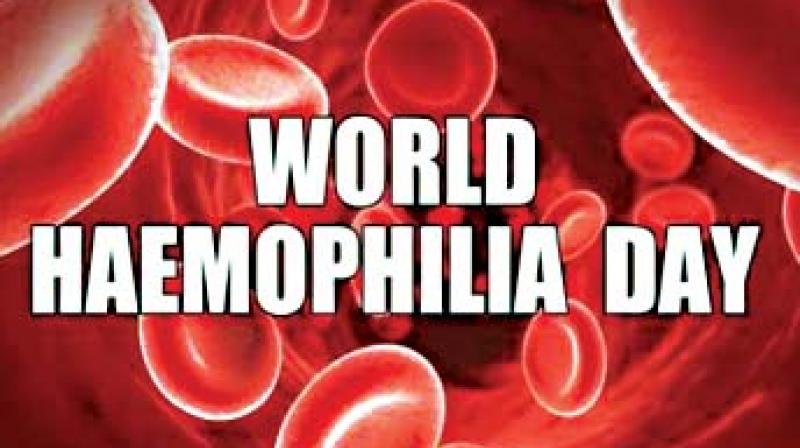More awareness needed in rural areas

Bengaluru: Majority of haemophilia cases go unrecognised and unidentified in the country, making it one of the biggest challenges for the healthcare field. Despite the advancement in medical technology, many people in rural areas still don’t have diagnostic facilities, say doctors on the World Haemophilia Day, which is observed on April 17.
Haemophilia is a bleeding disorder in which the blood does not clot properly due to a defective clotting protein. India is estimated to have nearly two lakh patients and the second highest number of haemophiliacs in the world, reports stated.
“Unfortunately, the test for haemophilia is not available in rural areas. Even in Bengaluru, there are hardly 3-4 centres which conduct haemophilia tests. The technology has advanced, but it is not available in rural parts of the country. The only way the disease can be diagnosed in small cities and towns is by primary physicians, who are educated and trained to diagnose the disease,” said Dr Satish Kumar A., Consultant-Oncology, Columbia Asia Referral Hospital, Yeshwanthpur.
He said that the cost is also a factor as patients have to spend approximately Rs 10,000-15,000 for the tests.
Dr Sunil Bhat, Senior Consultant & Head of Paediatric Haematology, Oncology and Bone Marrow Transplantation, Mazumdar Shaw Cancer Centre, Narayana Health City, said the care and access to appropriate treatment, which is multidisciplinary, has improved in bigger cities and metros. “Rural areas are still a big challenge. Limited access to diagnostic facilities, like coagulation testing and factor assays, ignorance and myths associated with the condition, not only in communities but also medical fraternity, and limited access to qualified specialists (haematologists) are the issues in these areas,” he said.
Experts said that haemophilia is a hereditary problem. “Marriages among relatives are very common in rural parts of the country, which is one of the main reasons for haemophilia. Families should be educated about the risks and consequences of haemophilia and that if ignored, it could pass from one generation to the next,” they said.

